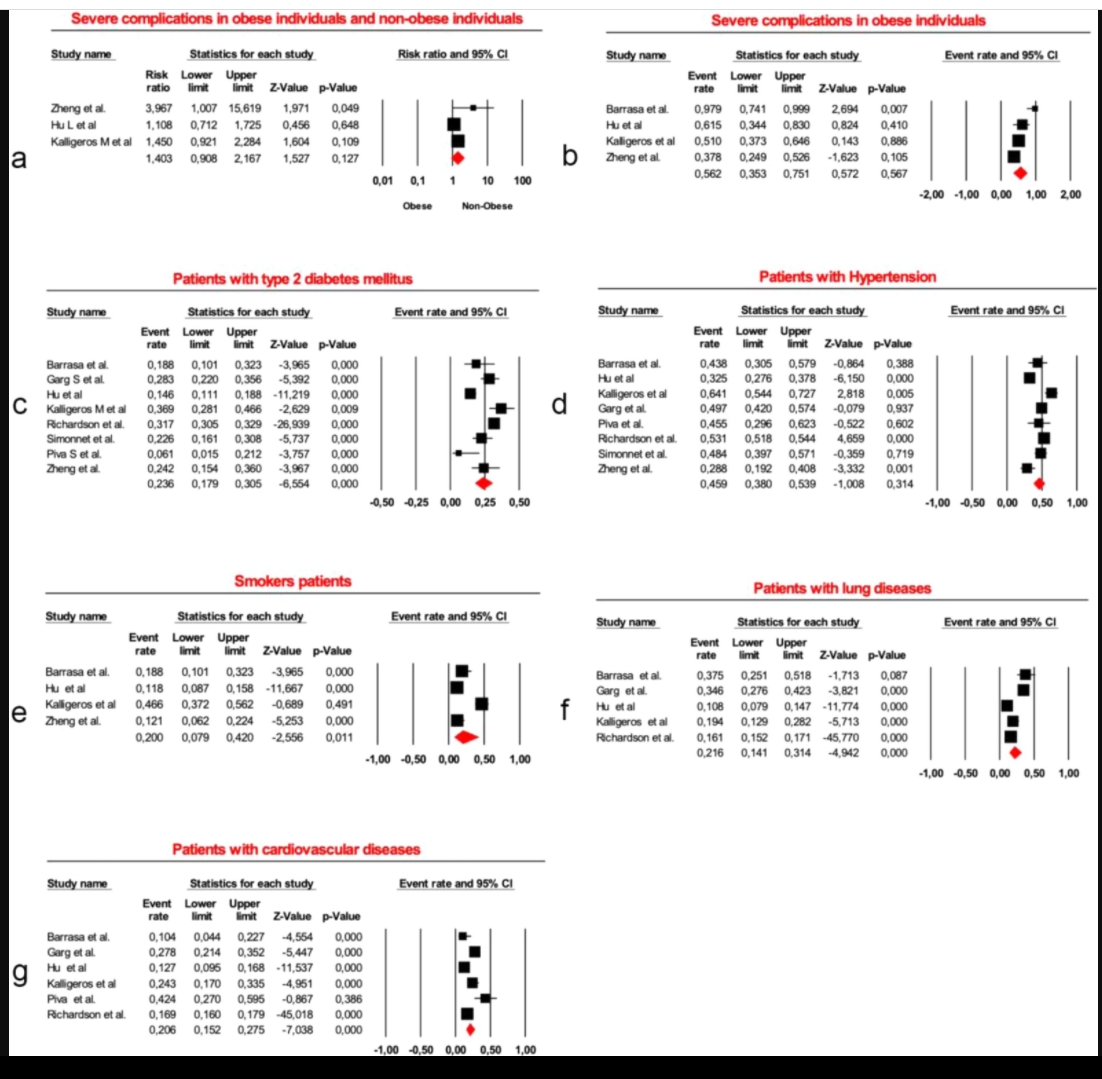Coronavirus (SARS-CoV-2) and the risk of obesity for critically illness and ICU admitted: Meta-analysis of the epidemiological evidence
Silvia Helena de Carvalho Obesity Research & Clinical Practice Volume 14, Issue 5, September–October 2020, Pages 389-397
Objectives
To investigate the relationship between coronavirus disease 2019 (COVID-19) and obesity in critically ill patients admitted to the intensive care unit (ICU).
Methods
We systematically searched PubMed, SCOPUS, Embase, LILACS, and Web of Science for studies published up to April 27, 2020. The outcome of interest was composite poor outcome, comprising mortality and severe COVID-19. We used a standardized data extraction form to collect information from published reports of eligible studies. Heterogeneity and publication bias were assessed using I2 statistic and funnel plots, respectively.
Results
Nine studies including 6577 patients were selected for evaluation. The COVID-19 patients were 59.80% male and had comorbidities such as hypertension (51.51%), diabetes (30.3%), cardiovascular disease (16.66%), lung disease (15.99%), renal disease (7.49%), cancer (5.07%), and immunosuppression (1.8%). For patients with severe complications, the overall pooled event rates were 56.2% (random; 95% CI: 35.3–75.1; p = 0.015; I2 = 71.461) for obesity, 23.6% (random; 95% CI: 17.9–30.5; p = 0.000; I2 = 87.705) for type 2 diabetes, 45.9% (random; 95% CI: 38.0–53.9; p = 0.000; I2 = 90.152) for hypertension, 20.0% (random; 95% CI: 7.9–42.0; p = 0.000; I2 = 94.577) for smoking, 21.6% (random; 95% CI: 14.1–31.4%; p = 0.000, I2 = 92.983) for lung diseases, and 20.6% (random; 95% CI: 15.2–27.5; p = 0.000, I2 = 85.735) for cardiovascular diseases.
Discussion
This systematic review indicated the relationship between obesity, ICU admission, severe COVID-19, and disease progression in patients with COVID-19. Obese patients with hypertension, type 2 diabetes, smoking habit, lung disease, and/or cardiovascular disease should be cared for with increased attention.














